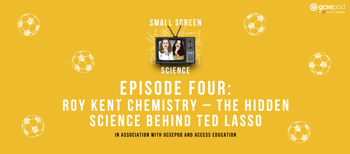
From the science of gift-giving (those pink boxes of biscuits!) to the physics of dart throwing in that iconic pub scene, this episode reveals how even a show about football (or soccer, as Ted would say) is filled with fascinating scientific concepts.
Watch
Spotify: https://open.spotify.com/show/7ka0hbd2EX0ZjvFBqnBDM
Apple: https://podcasts.apple.com/gb/podcast/small-screen-science/id1511181067
Fun Fact
Remember Ted's advice to "be a goldfish" because they have a 10-second memory? It turns out this is completely false! Research from the University of Oxford has shown that goldfish actually have excellent memories that can span at least three months. In one study, goldfish were trained to swim 70cm along their tank, turn around when researchers waved their hand, and return to their starting position for a food reward. When the hand-waving cue was removed, the fish still turned back at roughly the right distance, demonstrating their ability to remember distances and locations. Goldfish can even recognize different shapes, colours, and sounds, and can be taught to perform tricks through positive reinforcement!
Listener Challenge
We're fascinated by the psychology of leadership in "Ted Lasso"! Your challenge: Research the concept of "psychological safety" in workplace teams and how it affects performance. How does Ted create this environment for AFC Richmond? Can you find examples of other real-world leaders who use similar techniques? What scientific evidence supports this approach to leadership?
Access GCSEPod Science Resources
Classroom Corner
Want to use this episode in your classroom? Here are some discussion points to explore with students:
- How does psychological safety affect team performance? What hormones and neurotransmitters are involved?
- Investigate the physics of dart throwing – what forces are at work, and how does trajectory affect accuracy
- Analyse Ted's gift-giving strategy with Rebecca. How does presentation affect perception of gifts?
- Examine the biology of facial hair growth and social perceptions of different facial hair style
- Design an experiment to test animal memory – how would you measure a goldfish's actual memory span?
Listen to the full episode of Small Screen Science wherever you get your podcasts!
Spotify: https://open.spotify.com/show/7ka0hbd2EX0ZjvFBqnBDMU
Apple: https://podcasts.apple.com/gb/podcast/small-screen-science/id1511181067

 AU & NZ
AU & NZ
 SG
SG
 MY
MY
 US
US
 IE
IE

